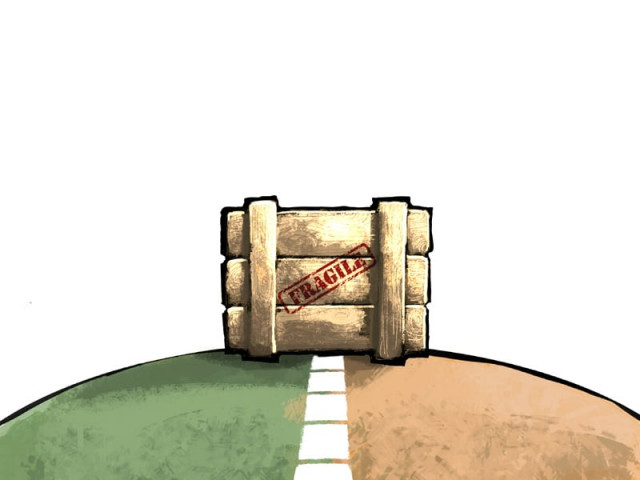Trade and sound economic policy can promote peace
It has generally been argued that war with a trading ally is economic suicide.

Trade and sound economic policy can promote peace
What kinds of policy choices make conflicts more or less likely? While the answers to this question are not definitive and exact, research that attempts to answer this question generally takes as a starting point those features of economies that are believed to increase the likelihood of conflict and then points to the failure of governments to address them.
Indeed, according to research conducted by Harvard University, many of the structural factors that are associated with conflict – low levels of education and high dependence on natural resources – are themselves in part a function of government policies.
Political scientist William Reno for example describes ways in which political leaders take deliberate actions to undermine their economies (and their governments) in order to enrich themselves personally. By weakening state institutions (in some cases signaled by fiscal collapse) and destroying infrastructure for production, leaders may make rebellion or violence more attractive: they reduce the direct costs as well as the opportunity costs of violence.
The impact of government policies, however, may be more contentious when they are undertaken with the express intention of fostering economic development. There is for example much anecdotal evidence that the structural adjustment (or “austerity”) programmes implemented throughout the 1980s and 1990s spawned civil conflicts. These policies, while formally implemented by governments, were strongly promoted by international financial institutions such as the World Bank and the IMF, who made the granting of loans conditional upon the adoption of their policies. Even now, a significant cross-section of Pakistanis - wrongly or rightly so – feel that IMF policies are not in their best interest. In a number of countries – such as Venezuela and Morocco – such programmes led directly to street violence. But can the rise in civil wars also be put down to these policies? Surprisingly, when the World Bank turned to study civil wars it did not attempt to study the role of the structural adjustment programmes it helped impose.
However studies by the World Bank or the WIDER research group to look at the effects of policies consistent with structural adjustment have found no direct relationship between these policies and conflict.
Trade and war
Researchers have put some effort into trying to find out whether international trade increases or decreases the likelihood of conflicts (so far no comparable work has been done to find links between internal trade and civil war). The results of this research matter for foreign policy. If, for example, the US increases trading relations with China will this lead to a greater risk of conflict – perhaps by strengthening China and giving it commercial power over the US or, by introducing interdependence and stronger mutual interests, will it reduce risks? Both positions have been put forward by political scientists and advocated by policy makers.
Liberal theorists focus more on the gains to both parties from trade. They argue that where trade is mutually beneficial, to fight with a trading partner would be committing “commercial suicide.” Related arguments claim that, through exchange, trading partners develop greater understanding for each others’ cultures. Political philosophers, meanwhile, suggest that trade reduces the risk of conflict because trade alters cultures.
The belief that the net effects of trade and cross-investment will be to reduce violent conflicts has found considerable support among policy makers. In Europe for example the view motivated the creation of the European Coal and Steel Community in 1951, later to develop into the European Union. The logic is also supported by empirical research that demonstrates that once proximity is taken into account, states that trade with each other are indeed less likely to fight each other. Maybe this, more than any other, is reason enough why India and Pakistan should promote mutual trade.
Published in The Express Tribune, July 30th, 2012.



















COMMENTS
Comments are moderated and generally will be posted if they are on-topic and not abusive.
For more information, please see our Comments FAQ